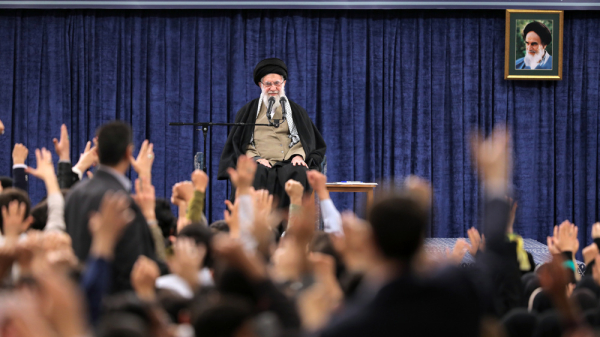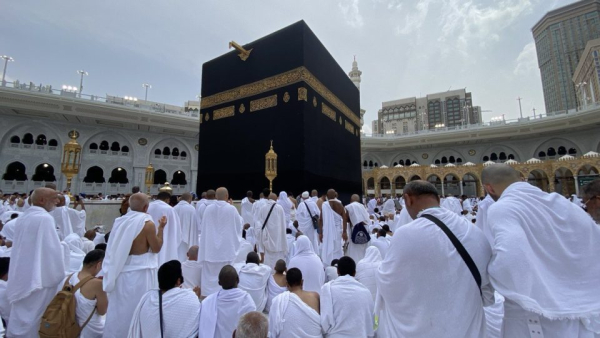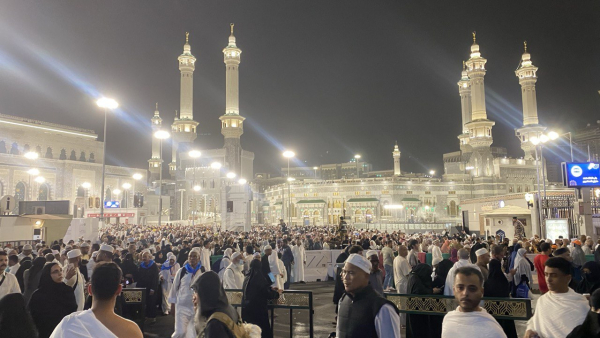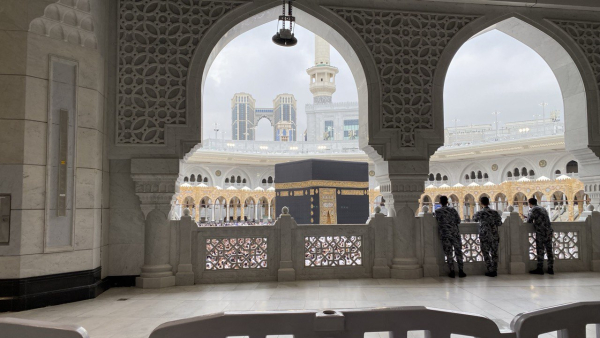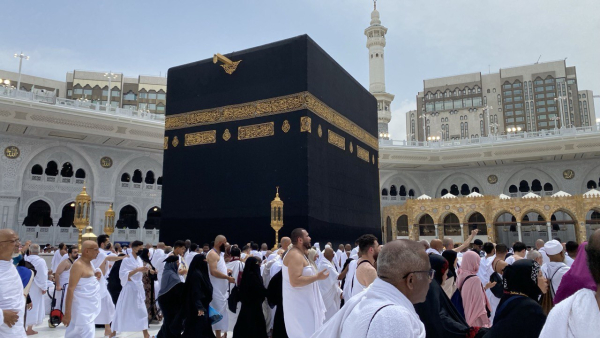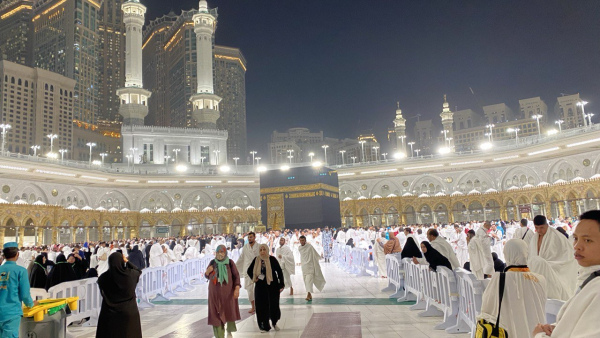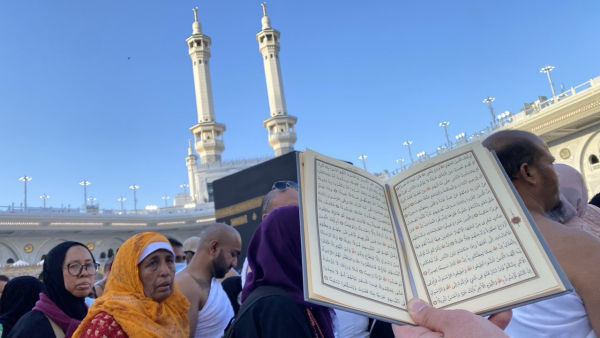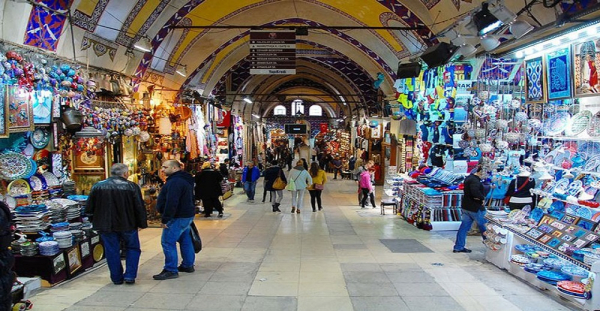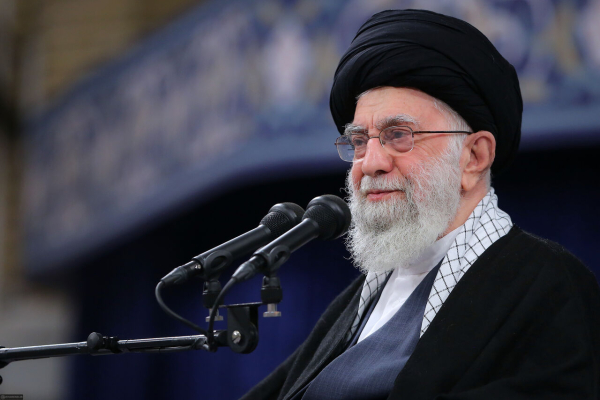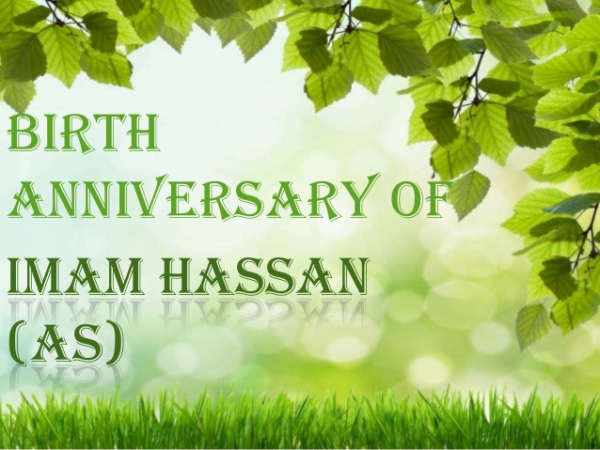zarezadeh
Trump’s call for talks with Iran ‘deception’: Ayatollah Khamenei
Leader of the Islamic Revolution Ayatollah Seyyed Ali Khamenei says a call by US President Donald Trump for negotiations with Iran is nothing but an attempt to "deceive the world public opinion" and portray the Islamic Republic as the party not willing to give diplomacy another chance.
“We sat down for years and negotiated. This same person threw off the table and tore apart the concluded, finalized, and signed negotiations,” Ayatollah Khamenei said during an address to a gathering of students in Tehran on Wednesday.
“When we know he doesn’t honor [agreements], what is the point of negotiating?” the Leader asked. “Therefore, calls for negotiation and talks of negotiation are meant to deceive the global public opinion.”
The Leader said the Trump administration does not intend to remove the sanctions, and that negotiations will only worsen the pressure campaign as Washington will raise new demands.
“If the purpose of negotiations is to lift the sanctions, negotiating with this US administration will not remove the sanctions. It will make the sanctions even tighter and increase the pressure,” the Leader said.
‘US to lose more in case of war’
Responding to Western allegations that Tehran seeks nuclear weapons, the Leader reiterated that Iran does not want to build nuclear arms, adding that it could have done so by now if it had so chosen.
“It is said that ‘We won’t let Iran obtain nuclear weapons.’ Had we wanted to build nuclear weapons, America could not have stopped us. The fact that we don’t have nuclear weapons and are not pursuing them is because we ourselves don’t want them for specific reasons.”
Referring to US threats of military action against Iran, Ayatollah Khamenei warned that Iran is prepared to deliver a decisive response. The United States, he said, would suffer more in such a confrontation.
“In my view, this threat is irrational because war or military aggression is not a one-sided affair. Iran has the capability to retaliate, and it will certainly deliver a counterstrike if necessary,” he said. “I even believe that if the Americans or their agents make a wrong move, they will suffer more damage than anyone else.”
‘Sanctions losing effectiveness’
On the sanctions, the Leader said such measures are losing their effectiveness gradually as Iran has found ways to neutralize them.
“Over time, when sanctions persist globally, they gradually lose their impact. Even they (US officials) themselves admit this. They acknowledge that a sanctioned country can gradually find ways to neutralize sanctions and render them ineffective. We have discovered many such ways and have neutralized sanctions in many areas,” the Leader said.
However, Ayatollah Khamenei said that most of Iran’s economic challenges stem from internal negligence and mismanagement rather than external sanctions.
‘Resistance growing in power’
Ayatollah Khamenei also addressed the martyrdom of prominent resistance leaders in Lebanon, Palestine, and Iran over the past year, including Hezbollah leader Sayyed Hassan Nasrallah.
While acknowledging the losses felt by the Resistance Front, the Leader emphasized that these setbacks do not signify weakness or decline.
“Yes, these brothers were incredibly valuable individuals whose absence is undoubtedly a loss for us, there’s no doubt about that,” Ayatollah Khamenei stated.
“But today, despite their absence, we are stronger in some areas compared to last year on this very day. In other areas, we are at least as strong as before, if not stronger.”
He added that the loss of prominent figures does not mean retreat or weakness if two key factors remain intact: Having ideals and striving toward those ideals.
“If these two factors exist within a nation, then while the absence of such individuals may be a loss, it won’t disrupt the overall movement forward,” Ayatollah Khamenei said.
Press TV’s website
How have the Kaaba's curtain changed throughout history?
Anyone who has been on the Hajj pilgrimage has seen that the Holy House is covered with a cloth. This is also seen in pictures of the Kaaba, and we even see in very old photographs that a cloth has been thrown over the Kaaba. When did this happen?
Covering the Holy House has been a tradition for centuries. Not only can we see this in very old photographs, but we can also see this when we study history. Even a position called "the curtain keeper" of the Kaaba was created for this reason, and there were people who were responsible for maintaining, replacing, and changing the covering of the House of God.
As is clear from the narrations, it seems that the first people to cover the House of God with a cloth were Prophet Abraham and Prophet Ismail (peace be upon them). This is something that is clear from the hadiths of the pure Imams (a.s.), especially from the precious words of Imam Sadiq (a.s.).
Although some Sunni brothers believe that a person named Tubba or Asad Al-Hamiri was the first person to cover the Sacred House of Allah with a cloth, and of course they say that he put a door for the Kaaba. At the same time, some narrations state that the first person to cover the Kaaba was Hazrat Ismail (a.s.), and Tubba years later changed the covering of the Kaaba to a covering made of leather.
Has the type of cloth that covers the Kaaba changed throughout history?
Yes. As history shows, the Sacred House of Allah was covered with a cloth made of leather in the era before the advent of Islam and the mission of the Holy Prophet (s.a.w.s.); But the Messenger of God (peace be upon him and his family) changed this cloth and covered the Kaaba with a Yemeni cloth. After his death, the second and third caliphs covered the Kaaba with a thin, white Egyptian cloth called Qabati. Of course, some sources state that before the advent of Islam, the Kaaba was covered with this thin, white cloth.
In the second century AH, Hussein ibn Aftas, a Talebi, led a rebellion and took control of Mecca. After this capture, he entered the Kaaba and took possession of all the cloths there. Then he covered the Sacred House with a yellow and white silk cloth.
A few years later, when Ma'mun became the caliph, he was informed that the cloth on the Kaaba, which was red at that time, had become worn out. He ordered that a white silk cloth be sewn and installed on the Kaaba.
What are the cultural effects of Hajj?
This avoidance of hypocrisy and showing off and paying attention to the deity is also one of the important philosophies of Hajj.
That's right. One of the most important philosophies and wisdoms of Hajj is that it affects the morality and character of a person. Someone who was looking for hypocrisy and being seen in the eyes of people before Hajj, after Hajj, sees only God and seeks divine pleasure. Basically, the Ihram ceremony itself is a kind of ceremony that should completely distance a person from worldly attachments and attention to external and material privileges. Suddenly, during the Ihram ceremony, a person is freed from any kind of vain and worldly privileges that have no effect on his spirituality and, on the contrary, distance a person from spirituality, and this is one of the important philosophies of Hajj.
At the same time, while we are moving away from hypocrisy and attracting attention in the eyes of people, it is as if we are also establishing a bond with believers.
That's right. Muslims establish a bond of friendship during Hajj. Everyone appears with one voice, with the same appearance, and has a single slogan and goal. Important cultural exchanges take place during this ceremony, and all Muslims unite. This is why it is stated in narrations that one of the important effects of Hajj is the dissemination of the news and teachings of the Holy Prophet (peace and blessings of Allah be upon him) to all parts of the Islamic world.
Are there any conditions for performing Hajj and its effect on the forgiveness of sins?
Yes. As mentioned, a person must not have the intention of committing a sin after Hajj and his repentance must be genuine. As Imam Sadiq (AS) said: “Whoever performs Hajj without any kind of hypocrisy and showing off and only with the intention of seeking the pleasure of Allah, Allah Almighty will forgive his sins.” Note that when someone goes to Hajj for hypocrisy and showing off and intends to be honored by people by doing so, he must ask for his reward from those people. Allah Almighty accepts Hajj that a person performs without hypocrisy and with the intention of seeking Allah’s mercy, not to attract attention from people.
Today, the Kaaba is covered with a black cloth. What is the history of this issue?
One of the Abbasid caliphs, Al-Nasir Ludinullah, was the first to cover the Kaaba with a black cloth. Of course, the cloth was made of silk. Since then, the Kaaba has been covered with a black cloth every year. In fact, this trend has become common since the time of the Abbasid caliph and has continued to this day.
Here, the question comes to mind: why is it necessary to cover the Kaaba with a black cloth?
The reason why the cloth covering the Kaaba is black is that the heat and intensity of the sun's radiation in the land of Arabia are very high, and a hot light shines on the Kaaba. Among all the existing colors, black is more resistant to the sun and it seems that this color is more suitable for covering the Sacred House of Allah.
Why is the Tawaf seven rounds?
Another question is about Tawaf. It has been said that the Tawaf of the Sacred House of Allah must be seven rounds. What is the reason for this? Basically, what is the secret behind the fact that we must definitely go around the Kaaba seven times during Hajj?
Many people have asked the Holy Prophet (peace and blessings of Allah be upon him) and the pure Imams (peace be upon him), and those great people have answered this question to the best of their mental capacity and understanding. The depth of the story of the seven rounds of Tawaf has secrets that lie in divine wisdom, and only those great people do not know it and cannot understand it. However, they have mentioned some points about it in their speeches.
For example, it is mentioned in a hadith that Imam Sajjad (peace be upon him) said that I asked my father Imam Hussain (peace be upon him) why the Tawaf was made seven rounds and why Muslims and believers must go around the Kaaba seven times? The Prophet replied: Because God Almighty told the angels that I will place a successor on earth. But the angels objected and said: Will you place someone on earth who will shed blood and cause corruption? So if the purpose of creation is worship, we will praise and glorify You and worship You.
But God Almighty said that I know truths that you do not know. He became angry with the angels and those who benefited from the divine light were deprived of it. This continued for seven thousand years and they asked God Almighty for forgiveness and pardon for seven thousand years until they were finally forgiven by God and the House of the Occult, which is located in the fourth heaven, was made the Kaaba, a place of refuge, safety and reward. Since then, it has become obligatory for God's servants to circumambulate the Kaaba seven times, circling it once every thousand years.
Why did God make Hajj obligatory for Muslims?
Hajj is one of the obligations that our Lord has made for us, but what is the real reason for it?
Why should we go to Hajj, why should we perform difficult and exhausting acts during Hajj, can't we perform another act of worship instead of Hajj?
Hajj is a worship in which there are many wisdoms, such as servitude, simplicity, obedience, unity, etc.
These benefits include all material, spiritual, political, social, cultural and economic benefits; one of the wisdoms of Hajj is to examine the important issues and problems of the Islamic nation, cultural exchange, etc.
This Islamic worship, like other Islamic worships, has beneficial wisdoms that benefit the individual and society.
Here we will briefly discuss some of the wisdoms of Hajj:
The most important and beneficial wisdom of Hajj is to declare servitude and servitude to God Almighty, which is evident and clear in all acts of Hajj such as Ihram, Tawaf, Sa'i, Sacrifice, etc.
In addition, many spiritual, psychological and moral benefits accrue to the pilgrim and to the Islamic community, including:
By wearing Ihram and severing his/her dependence on material and worldly attachments, a person is freed from all harmful restrictions and dependencies and becomes ready to ascend and fly in spiritual and mystical spaces.
Muslims from all over the Islamic and non-Islamic countries gather in the Great Hajj Congress on specific days and, with unity and consensus, examine the solutions to the problems of the Muslims of the world and seek help from the great power of Muslims in resolving the problems. And they establish Islamic unity among all Muslims of the world, God willing.
The dynamics of the Muslim market and economy
Since ancient times, the Hajj season has been a good opportunity for the prosperity of Muslim merchants and the circulation of capital in the hands of merchants and the poor from the east to the west of the world.
Getting to know the works and news of the Holy Prophet (PBUH) and keeping these works alive
Hisham ibn Hakam says that I asked Imam Sadiq (AS): Why has God commanded people to perform Hajj and circumambulate His House?
He said: God created humans... and commanded them to perform an act (Hajj) that includes obedience to religion and their worldly interests. During the Hajj season, Muslims gather from the East and the West to get to know each other, so that each nation can benefit from the trade and economic products of other nations, so that travelers and transporters can benefit from renting their vehicles on this journey, so that they can become familiar with the works and news of the Holy Prophet (PBUH) and these works will continue to live and not be forgotten. If each nation were to speak only about its environment, they would perish, cities would be destroyed, commercial benefits would be lost, and the news and works of the Prophet would be destroyed. This is the philosophy of Hajj.
Iran's population crosses 86 million people
According to the Statistics Center, the country's population crossed 86 million mark in the last days of 1403.
According to Mehr News Agency, the Statistics Center of Iran announced: The population clock shows changes in the population and its increase in relation to time. In Iran, the population clock was first placed on the website of the Statistics Center of Iran in 2009, and since then, population estimates have been made available to users in real time.
In order to calculate the population clock designed on the National Statistics Portal, factors affecting population growth, including fertility, mortality, and migration, are first taken into account for the entire country.
For the first time, the first population clock was designed on the United Nations website. Given the large size of the world's population, this clock displays the estimated population in real time.
After the UN, populous countries such as China, the United States and India, and then less populous countries such as Australia, Canada and New Zealand, designed population clocks on related sites and provided their users with real-time population estimates.
The population clock displays Iran’s population at any given moment based on population estimates. Accordingly, the Population Clock of the Statistical Center of Iran shows that the country’s population exceeded 86 million people in the last days of 1403.
Leader of the Revolution: The US President's invitation to negotiate is a deception of public opinion
According to Mehr News Agency, this evening, in a meeting with thousands of students across the country and activists of political, social, cultural organizations and student jihadist groups, the Supreme Leader of the Islamic Revolution, while expressing important recommendations in criticizing and evaluating issues and strengthening student identity by explaining two different experiences of Iranian youth in facing the West, said: The first experience led to self-destruction, but in the second experience, which is the current movement of the student body in the same direction, recognizing the realities of the West, seeking independence, and distancing oneself from the problems of Western civilization are the main principles.
Ayatollah Khamenei also called negotiations with the current US government fruitless and causing further blindness to the knot of sanctions, and referring to the US government's efforts to deceive world public opinion about negotiations, he said: We are not looking for nuclear weapons, which if we were, we would have produced them by now. In addition, we will respond decisively to any possible blow.
The Leader of the Revolution considered today's speeches by the representatives of the organizations as a sign of progress, maturity, and growth in the level of thinking, analysis, and understanding, and considered this issue hopeful and good news.
He added: Of course, I do not agree with all the statements made by the students in this meeting. For example, a student said that security and military elements have become statement writers in critical moments against the Zionist regime, while if investigated and investigated, it will become clear that this is not true and those who should have done something did it in their own time.
In response to the words of one of the students, Ayatollah Khamenei also added: I continue to rely on the youth and my hope is only in them, but the basic condition is that the youth remain steadfast in their correct positions and persevere in them, and do not become hesitant, passive, or deviate from the main path when faced with obstacles.
The Leader of the Revolution strongly advised officials at the Ministry of Science and Health to pay full attention to and follow up on the issues raised in the students' speeches.
Recalling the various events of the past year, He added: Last year, on such days, martyrs Raisi, Sayyed Hassan Nasrallah, Haniyeh, Safi al-Din, Sinwar, Dheif and several prominent revolutionary figures were among us, but they are not now, and for this reason the enemy thinks that we have become weak, but I can confidently emphasize that although the absence of these very valuable brothers is a loss for us, we have become stronger in many areas compared to last year and have not become weaker in some areas.
Explaining the reason for the continued strength of the Resistance Front, Ayatollah Khamenei added: If the two factors of ideals and efforts exist in a nation and a group, their overall movement will not be affected.
In another part of his speech, the Leader of the Revolution, citing verses from the Quran, considered the purpose of fasting to be the attainment of piety, adding: Piety protects a person from evils, temptations, ill-will, malice, wickedness, debauchery, lust, neglect of duty, and abandonment of obligatory actions.
He considered creating worldly openness and guidance to be two important effects of piety, adding: Piety creates openness in various fields in this world, including economics and security.
Ayatollah Khamenei considered enjoying divine guidance to be the supreme goal of every human being, adding: Achieving prosperity, happiness, and salvation can only be achieved under the guidance of God Almighty, and this guidance is an effect of piety.
The Leader of the Revolution considered individual determination and will to be necessary for attaining piety, adding: The late Imam advised that in order to move on the path of piety, one must make a manly and decisive decision.
In the main part of his speech explaining the identity of the Iranian student, Ayatollah Khamenei addressed two different experiences of Iranian youth in the contemporary era in their encounter with the West and Western civilization, emphasizing: The result of the first encounter was “fascination and self-defeat,” and the result of the second encounter was “recognition of Western civilization, selective dealing with Western realities, a sense of independence, and in some cases, a sense of profound difference and complete separation.”
He considered the first encounter of Iranian youth with the West about a hundred years ago to have created the duality of “the advanced West and the weak and backward Iran” in the minds of the youth, and said: This duality was, of course, a reality at the time, but it should not lead to self-defeat and following the West; because observing the strengths of the other side should make people think about solutions and compensating for their weaknesses, rather than prescribing submission and obedience.
The Leader of the Revolution called the inaction in the face of Western advances the cause of neglecting the strengths of the Iranian nation and country, and said: That experience could have led to complacency, but unfortunately it led to complacency, and some people inside the country intensified this neglect and commitment, encouraging people to completely imitate the manifestations of the West; namely, imitation in moral and cultural issues, not issues such as science and seriousness, which are the basis of Western progress.
He called Reza Khan the embodiment of destructive and destructive Westernization, and added: The British put that tyrant in power and then, when their interests demanded it, they removed him, but during this time, they instilled in public opinion the circle of Reza Khan’s deviation, the need to obey and assimilate to the West in all the country’s affairs and issues, and emptied the country from within, leaving nothing national, such as a national economy, national domestic and foreign policies, or even national clothing for Iranians.
The Leader of the Revolution considered the second experience of the West's presence in Iran to be the result of bitter events such as the occupation of parts of the country by Britain and Tsarist Russia, famine and the loss of thousands of lives, the suppression of internal movements, and the imposition of humiliating contracts such as the Darcy Oil Contract during the time of Reza Khan, and added: "These events revealed the inner nature of Westerners to the people, especially the youth, and made it clear that behind their polished appearance and smiles lies a malicious and treacherous inner nature"
Birthday Anniversary of Imam Hasan (A.S.)
Imam Hasan (as) was born in Medina in c. 625. he was born in the Islamic months Ramadan, though most early works give his birthdate as 15 Ramadan 3 AH (2 March 625 CE), which is annually celebrated by the Shia. Imam Hasan was the firstborn of Holy Prophet Muhammad's daughter Fatima (as) and his cousin Ali(as).
